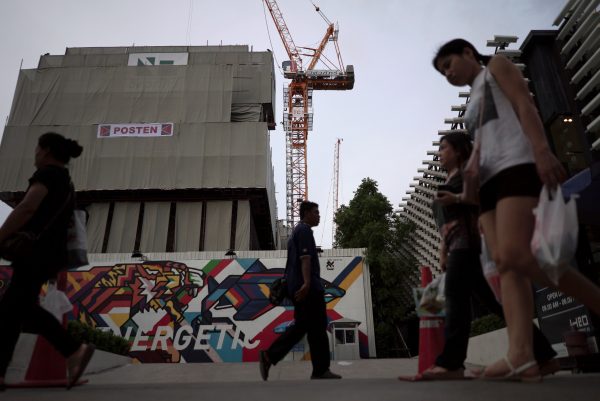Thailand’s Prime Minister Prayuth Chan-O-Cha proposed a policy that would allow foreigners to own land for residential use on 15 July 2022. Thai officials claim this will boost the economy by luring wealthy foreigners to spend and invest in the country.
Investing 40 million baht in Thai property, securities or funds for a period of at least three years is now one of many preconditions for foreign nationals to own up to 1 rai (approximately 1,600 square metres) of land from September 2022. Still, there are other ways foreigners can acquire rights to land — including through the ownership of companies, long term leases and other investment schemes available in Special Economic Zones set up by the Thai government.
When deciding to invest in Thai property, most foreign investors invest through companies — allowing a Thai national to arbitrate the property through a business committee on their behalf. Foreign investors can also purchase property through a tax-free scheme set up by the ‘Board of Investment’ agency administered by the Thai government.
Thailand’s real estate market has recently been characterised by an oversupply of flats. There were over 90 thousand unsold units of condominiums in the Bangkok Metropolitan Region (BMR) in Thailand as of 2020. By enabling foreign investment, the Thai government aims to provide liquidity to the real estate market by enabling a pool of wealthy investors to invest, boosting the Thai economy and increasing land tax revenue.
As a popular tourism destination and part of China’s Eastern Economic Corridor, many investors from China have ploughed into Thai property — so much so that half of all foreign owned condominiums in Pattaya city, one of the country’s tourist destinations, are under Chinese proprietorship. While deep-pocketed Chinese homebuyers are seen as saviours of Thailand’s struggling real estate sector, some are disliked for spending their money lavishly and buying property through fake legal partnerships. Some foreign investors even register under a Thai limited company or use a particular leasing policy to engage in money laundering.
Selling land to foreign nationals and having them use the land for residential purposes may worsen land inequality in Thailand. The additional taxes levied to capture the rent from foreign homebuyers will prove another barrier to entry for locals who find themselves increasingly priced out of the housing market. Still, there should be no conflation of allowing foreign land ownership, the acquisition of a bundle of rights over land, with the ceding of Thai sovereignty.
The Phuea Thai Party (PTP), Thailand’s leading opposition party, opposes the scheme. Arguing that nearly 80 per cent of Thai people do not own any land, they claim that allowing foreign ownership will only benefit those who own the majority of land — the upper-middle class and elites. Indeed, the proposed policy is unpopular outside of the military, civil service and politicians — all of whom benefit from a scheme that would distribute the revenue from increased land tax to select groups.
The current leasing policy is criticised not just for allowing foreign land ownership, but for failing to improve the well-being of low-income families. The policy is attracting wealthy investors in the short term, but Thailand is yet to create a business environment in which investors feel it is worthwhile bringing new technology, know-how and employment to the country for long-term benefits.
The new proposed policy for foreign land ownership will have significant implications for land ownership inequality and the economy of Thailand. While Bangkok’s proposed bill intends on reinvigorating the economy, the government should instead look to improving the rule of law and its local business environment in order to achieve better economic and housing outcomes.
Prem Singh Gill is an Adjunct Lecturer at the College of Interdisciplinary Studies at Thammasat University, Thailand and a Senior Researcher at The University of Tokyo, Japan.


Unless you are a multimillionaire, with sufficient funds to waste a chunk of it, Thai property is one to steer clear of. Condominiums look great for a handful of years and then the (mainly local) residents don’t want to put their hands in their pockets and the place will rapidly turn into a junkyard. If you have a Thai partner, that person will undoubtedly sell whatever property you purchase to some untrustworthy relative (without telling you). Basically, buy property anywhere but in Thailand if your head is screwed on the right way …
Happy to provide your personal details of my experiences, which are entirely negative. There’s a video on YouTube of an American with Thai ancestry who gained Thai citizenship whose Thai relatives essentially ripped him off without the blink of an eye. It’s on a channel called Thairish Times or something like that. Good luck and steer well clear if you know what’s good for you